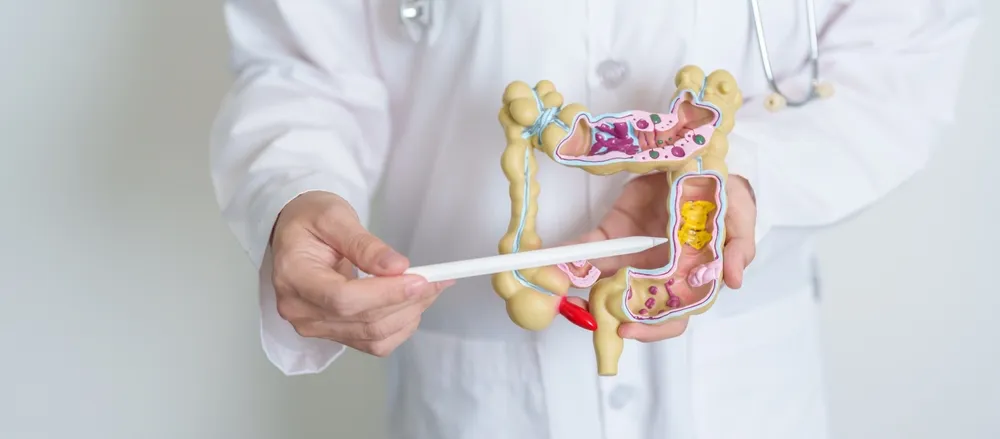A gastroenterologist specializes in diagnosing and treating digestive system issues, offering care for a range of conditions. You might consider seeing one if you experience persistent abdominal pain, chronic heartburn, or changes in bowel habits. Unexplained weight loss, difficulty swallowing, or symptoms of liver disorders also warrant a visit. Seeking timely expertise can help address these issues effectively, ensuring better digestive health and overall well-being.
What Does a Gastroenterologist Do?
A gastroenterologist is a medical professional who specializes in the diagnosis and treatment of diseases of the digestive system, which includes the esophagus, stomach, small intestine, large intestine, liver, pancreas, and gallbladder. They are highly trained in the prevention, diagnosis, and treatment of digestive disorders, and are experts in performing procedures such as colonoscopies and endoscopies to examine the digestive tract.
Gastroenterologists are also skilled in managing chronic conditions such as irritable bowel syndrome (IBS), Crohn’s disease, and ulcerative colitis. They work closely with patients to develop personalized treatment plans that may include medication, dietary changes, and lifestyle modifications to help manage their symptoms and improve their quality of life.
Symptoms That a Gastroenterologist Can Assess
Gastroenterologists are highly trained in the diagnosis and treatment of a wide range of digestive health issues, including:
- Abdominal pain: From mild discomfort to severe, chronic pain, they investigate the underlying causes, such as ulcers, infections, or irritable bowel syndrome (IBS).
- Nausea and vomiting: These symptoms can be related to various digestive issues, including gastrointestinal infections, food intolerances, or liver disease.
- Diarrhea and constipation: Gastroenterologists work to identify the causes of irregular bowel movements, which can range from diet-related issues to more serious conditions like Crohn’s disease or colon cancer.
- Heartburn and acid reflux: Chronic heartburn, or gastroesophageal reflux disease (GERD), is a common issue that can lead to complications if untreated. Specialists provide treatments to manage acid reflux effectively.
- Difficulty swallowing (dysphagia): Gastroenterologists can identify the cause of swallowing difficulties, whether due to a narrowing of the esophagus, GERD, or other underlying conditions.
- Liver disease: From hepatitis to cirrhosis, they diagnose and manage diseases that affect the liver’s ability to function.
- Pancreatitis: Inflammation of the pancreas can be acute or chronic, and specialists work to manage the pain and digestive complications that arise.
- Gallbladder disease: Gastroenterologists treat conditions such as gallstones and infections, which can cause severe pain and digestive disruptions.
Expert Diagnosis for Digestive Health
To accurately diagnose these issues, gastroenterologists utilize a range of advanced diagnostic tools, including:
- Blood tests: To assess liver function, detect infections, and check for inflammation.
- Stool tests: To identify infections, parasites, or digestive enzyme deficiencies.
- Imaging studies (CT scans, MRIs, ultrasounds): To visualize the digestive organs and detect abnormalities like tumors, blockages, or inflammation.
- Endoscopic procedures: Such as colonoscopies and upper endoscopies, which allow direct visual examination of the digestive tract and the ability to take biopsies.
- Biopsies: To obtain tissue samples that help diagnose cancer, infections, or other chronic conditions.
By utilizing their expertise and advanced diagnostic tools, gastroenterologists provide comprehensive care that helps patients effectively manage digestive disorders, prevent complications, and improve their overall quality of life.
Personalized Care for Digestive System Disorders
Gastroenterologists take a personalized approach to patient care, working closely with each individual to understand their unique needs and concerns. They develop individualized treatment plans that may include medication, dietary changes, lifestyle modifications, and, in some cases, surgery.
Gastroenterologists also provide ongoing monitoring and support to help patients manage their digestive health and improve their overall well-being.
Learn More About Digestive Health
If you are experiencing digestive problems, it is important to see a gastroenterologist for an accurate diagnosis and treatment. Learn more about digestive health and how a gastroenterologist can help you today.

